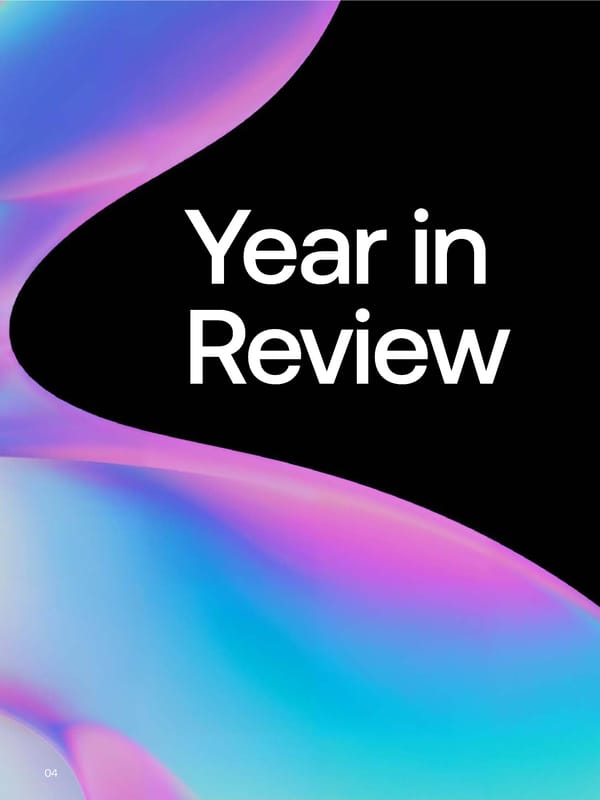Gener tive AI continues to resh pe our world Advancements in generative AI continued to accelerate in 2023. After the release of OpenAI’s ChatGPT in November 2022, the platform reached an estimated 100 million users in just two months. In March 2023, OpenAI released GPT-4, a large language multimodal model that demon- strated human-level performance across industry benchmarks. Other model builders joined the launch party last year. Google launched Bard, initially running on the LaMDA model and replaced shortly after by PaLM 2 (with improved domain-specific knowledge - including coding Ye r in and math). Anthropic introduced Claude 2 in the summer with a 100K context window. A week later, Meta unveiled Llama 2 and Code Llama, and included model weights and code for the pretrained model. Google DeepMind closed out 2023 with the release of Gemini - repre- senting a significant improvement in performance as the first model to outperform human experts on the Massive Multitask Language Under- Review standing (MMLU) test. Newer open source model families like Falcon, Mixtral, and DBRX demonstrated the possibility for local inference while innovating on model architecture to use far less compute. This year, in March 2024, Anthropic launched the family of Claude 3 models, doubling the context window. Just a few days later, Cohere released their Command R generative model - designed for scalability and long context tasks. Frontier research underlies many of these model advancements. Some significant advancements include: 1. Open AI achieved improvements in mathematical reasoning through rewarding chain-of-thought reasoning. Scale contributed to the creation of PRM800K, the full process supervision dataset released as part of this paper. 2. Anthropic uncovered an approach for better model interpretabil- ity through analysis of feature activation compared to individual neurons. 3. The Microsoft Research team discovered that a model with a smaller number of parameters relative to state-of-the-art models can demon- strate impressive performance on task-specific benchmarks when fine-tuned with high-quality textbook data. 04 05
 AI Readiness Report 2024 Page 5 Page 7
AI Readiness Report 2024 Page 5 Page 7